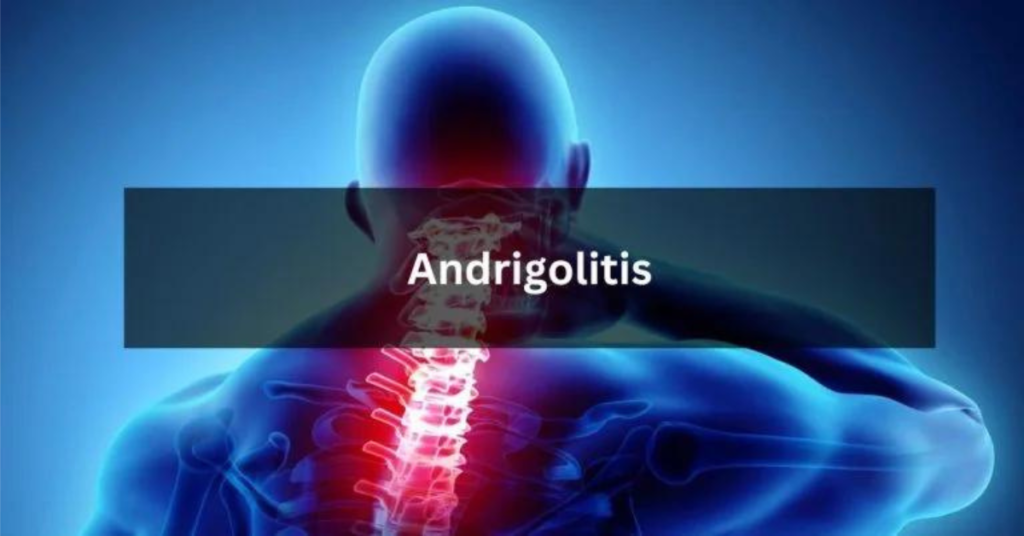In the vast realm of medical terminology, some conditions fade into obscurity while others emerge with significant implications for public health. One such term that is starting to capture attention is Andrigolitis. While it may not yet be a household name, emerging research suggests that this condition could have far-reaching effects on those it impacts. As we delve deeper into the nature of Andrigolitis, it becomes increasingly clear that understanding and addressing this condition is crucial. This article aims to provide a comprehensive overview of Andrigolitis, exploring its definition, symptoms, potential causes, implications, and the importance of awareness and research.
What is Andrigolitis?
Andrigolitis is characterized as a medical condition that involves the disruption of hormonal balance, primarily affecting male reproductive health. Although the term may not have widespread recognition yet, early studies indicate that it could play a significant role in various health outcomes, particularly in men.
Definition and Scope
The name “Andrigolitis” is derived from the Greek roots “andros,” meaning man, and “gole,” relating to the body or condition. In simpler terms, it refers to a condition affecting men, specifically linked to hormonal imbalances that can lead to a variety of health issues.
The scope of Andrigolitis includes, but is not limited to, the following aspects:
Hormonal Imbalance: Disruptions in testosterone levels, which can lead to both physical and psychological effects.
Reproductive Health: Issues related to fertility, libido, and overall sexual health.
Physical Symptoms: Manifestations such as fatigue, weight gain, and changes in muscle mass.
Symptoms of Andrigolitis
Recognizing the symptoms of Andrigolitis is crucial for early diagnosis and management. While research is still developing, the following symptoms have been commonly associated with the condition:
Hormonal Symptoms
Men experiencing Andrigolitis may report a range of hormonal symptoms, including:
Low Testosterone Levels: Fatigue, reduced libido, and difficulties in achieving or maintaining an erection.
Mood Changes: Increased irritability, depression, or anxiety, potentially stemming from hormonal fluctuations.
Physical Symptoms
Physically, Andrigolitis may present with symptoms such as:
Weight Gain: Especially around the abdomen.
Muscle Weakness: Decreased muscle mass and strength can occur as testosterone levels drop.
Fatigue: Persistent tiredness that is not alleviated by rest.
Fertility Issues
Andrigolitis can also impact reproductive health, leading to:
Decreased Sperm Count: This can be a significant concern for those looking to conceive.
Erectile Dysfunction: Problems with sexual function can arise, further complicating reproductive challenges.
Potential Causes of Andrigolitis
Understanding the potential causes of Andrigolitis is essential for developing effective treatment strategies. While research is still in its infancy, several factors have been suggested as contributing to the onset of this condition:
Lifestyle Factors
Lifestyle choices can significantly influence hormonal balance. Factors such as:
Poor Diet: High consumption of processed foods and sugars may lead to hormonal imbalances.
Sedentary Lifestyle: Lack of physical activity can contribute to weight gain and related health issues.
Substance Abuse: Alcohol and drug use can disrupt hormonal pathways, exacerbating symptoms.
Environmental Factors
Environmental exposures are increasingly being linked to hormonal disruptions. Potential contributors include:
Endocrine Disruptors: Chemicals found in plastics, pesticides, and personal care products can interfere with hormonal regulation.
Pollution: Air and water pollution may play a role in affecting overall health and hormonal balance.
Medical Conditions
Certain pre-existing medical conditions may predispose individuals to Andrigolitis, including:
Obesity: Excess body fat can lead to higher levels of estrogen, contributing to hormonal imbalances.
Diabetes: Insulin resistance can affect testosterone levels, leading to complications associated with Andrigolitis.
Chronic Illnesses: Conditions such as hypertension and heart disease can also impact hormonal health.
The Importance of Awareness
Recognizing the Condition
Given that Andrigolitis is still gaining recognition, awareness is essential for timely diagnosis and treatment. As symptoms may often overlap with other health issues, both patients and healthcare providers must be vigilant in identifying potential signs of this condition.
Public Health Implications
As Andrigolitis becomes more understood, its implications for public health must be considered. Hormonal imbalances can lead to broader health challenges, including:
Mental Health Issues: The psychological impact of hormonal changes can be significant, affecting overall quality of life.
Infertility Rates: As reproductive health declines, societal implications may arise, particularly concerning family planning.
Research and Funding
Increased awareness can drive research and funding toward understanding Andrigolitis. This includes:
Clinical Studies: More research is needed to define the condition, understand its causes, and develop effective treatment options.
Public Education: Informing the public about Andrigolitis can encourage individuals to seek help and initiate conversations about hormonal health.
Addressing Andrigolitis: Treatment and Management
While definitive treatments for Andrigolitis are still being explored, several strategies can help manage symptoms and improve overall health.
Lifestyle Modifications
Implementing healthy lifestyle changes can significantly impact hormonal balance. Recommendations include:
Balanced Diet: Emphasizing whole foods, lean proteins, fruits, and vegetables while minimizing processed sugars and fats.
Regular Exercise: Engaging in both cardiovascular and strength-training activities can promote healthy weight and hormonal balance.
Stress Management: Techniques such as meditation, yoga, and adequate sleep can help alleviate stress, positively impacting hormonal health.
Medical Interventions
For individuals diagnosed with Andrigolitis, medical interventions may be necessary. These can include:
Hormone Replacement Therapy (HRT): This therapy may help restore hormonal balance, particularly testosterone levels.
Medications: Depending on the underlying causes, medications may be prescribed to address specific symptoms or conditions.
Support Networks
Building a support network can be beneficial for those affected by Andrigolitis. This may involve:
Counseling Services: Seeking professional help can assist in managing psychological symptoms associated with hormonal imbalances.
Support Groups: Connecting with others who share similar experiences can provide emotional support and valuable insights.
The Future of Andrigolitis Research
Clinical Studies
As more attention is paid to Andrigolitis, clinical studies will play a crucial role in understanding this condition. Research should focus on:
Prevalence Rates: Determining how common Andrigolitis is among various populations.
Longitudinal Studies: Understanding the long-term effects of Andrigolitis on health and wellbeing.
Developing Guidelines
The medical community should work towards developing standardized guidelines for diagnosing and treating Andrigolitis. This includes:
Diagnostic Criteria: Clear criteria will help healthcare providers identify the condition more effectively.
Treatment Protocols: Establishing best practices for managing Andrigolitis can improve outcomes for those affected.
Conclusion
As we navigate the complexities of Andrigolitis, it becomes increasingly evident that this condition warrants attention. With emerging research highlighting its potential implications for male health, awareness and understanding are paramount. By recognizing the symptoms, exploring potential causes, and advocating for research and education, we can begin to address this condition effectively.
Whether you are hearing about Andrigoliti’s for the first time or have been following its development, staying informed is essential. As the medical community continues to explore this emerging condition, individuals can take proactive steps towards improving their health and wellbeing. The journey to understanding Andrigolitis is just beginning, and with increased awareness, we can pave the way for a healthier future.







